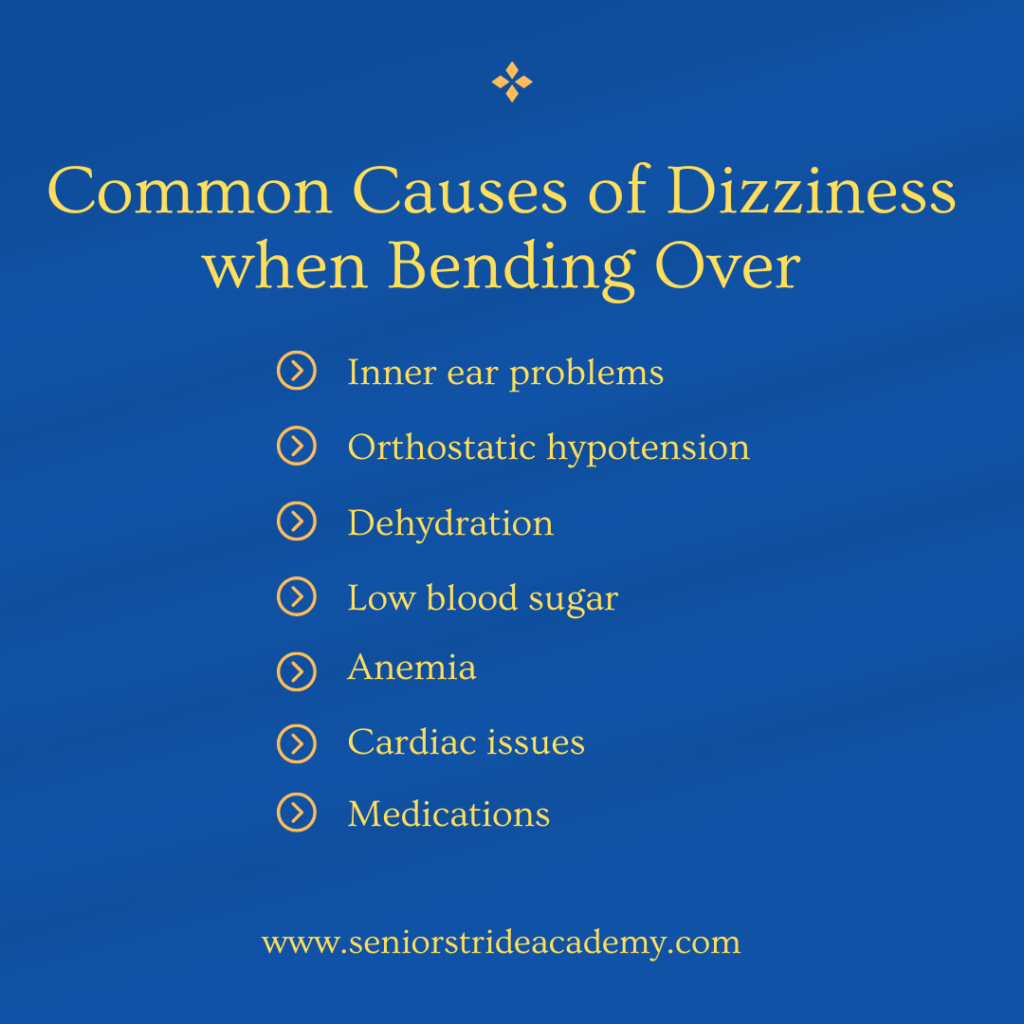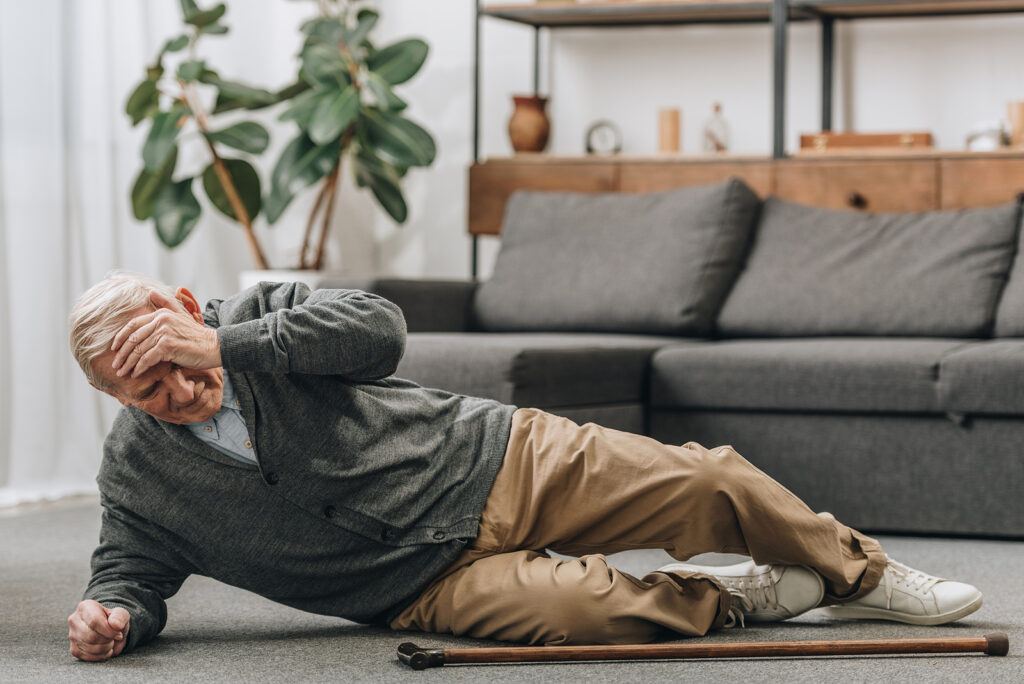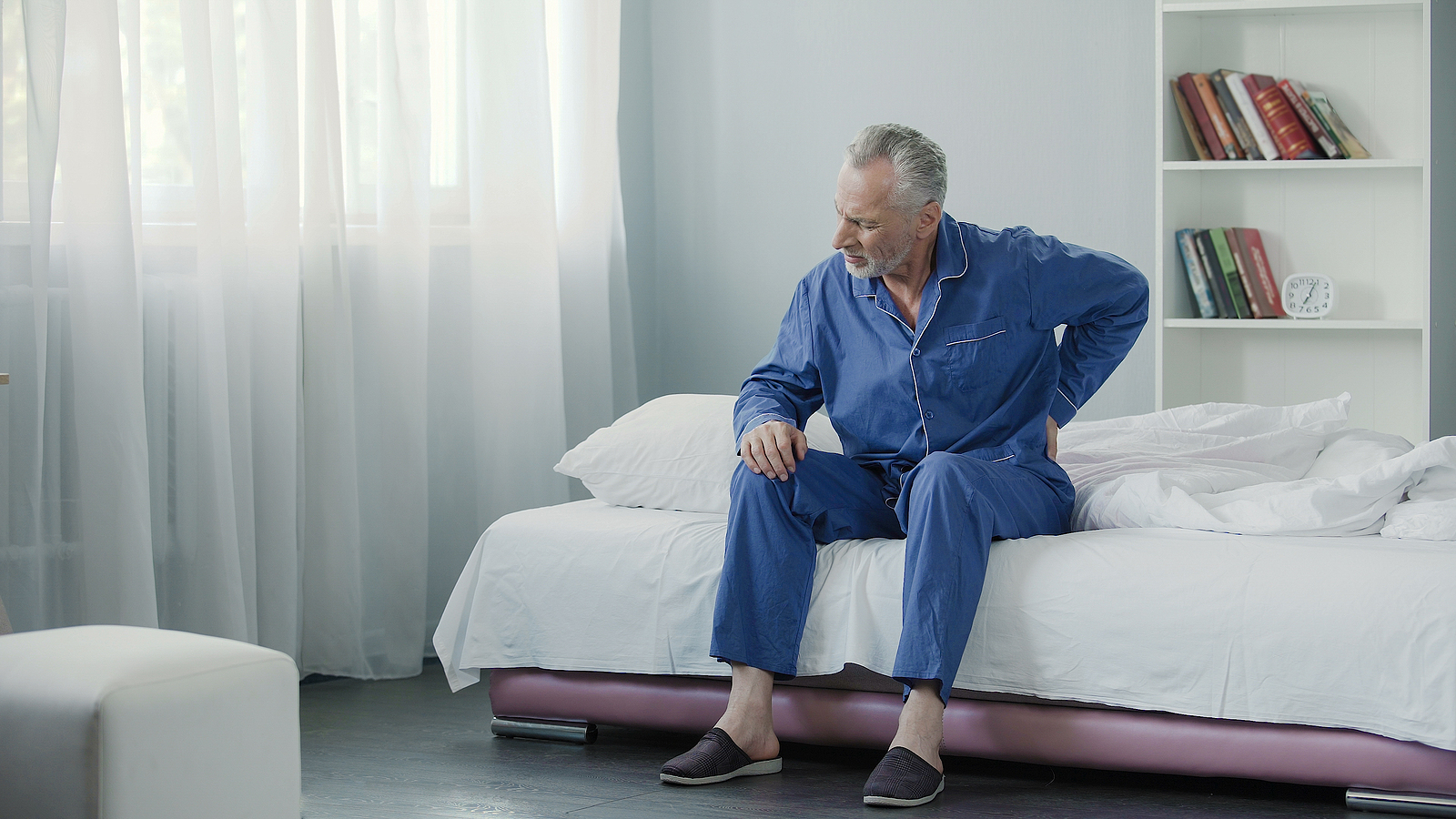Feeling dizzy when bending over can be a disorienting and sometimes alarming experience, especially as we age.
It can range from a brief moment of lightheadedness to a more intense spinning sensation that leaves you feeling off balance.
And while occasional dizziness might seem like a minor inconvenience, the fact that it can increase the risk of falls means it should be taken seriously.
Understanding why this happens in the first place is important for managing the symptoms and taking the steps necessary to prevent it from affecting your safety.
There are many potential reasons for experiencing dizziness when bending over, and they can vary widely from person to person. Some causes are related to temporary changes in blood pressure, while others may be linked to more chronic conditions like inner ear problems or medication side effects.
In this article, we’ll discuss the most common causes of dizziness when bending over, helping you identify what might be triggering your symptoms.
We’ll also provide practical tips on how to manage and mitigate these dizzy spells, so you can go about your day with more confidence.
So, without further ado…
Dizziness or Vertigo?
Before we get rolling with the different conditions below, we should probably discern whether you’re experiencing dizziness or vertigo.
You may think these two terms are interchangeable and refer to the same thing, but they’re actually different sensations:
Dizziness is a general sensation of feeling lightheaded, unsteady, or “woozy”; vertigo is the specific sensation of feeling as if you (or the room) is spinning.
We can consider vertigo a type of dizziness, but not all dizziness is vertigo.
This may sound like a case of semantics, but pin-pointing which feeling you’re experiencing can help with determining the cause.
Long-story-short, dizziness can have many causes, but vertigo is usually caused by an inner ear issue.

Inner Ear Problems
The inner ear (vestibular system) plays a big role in maintaining your balance, so when something goes wrong in there, it can mess with your equilibrium.
As mentioned above, inner ear problems usually present as vertigo, or a very uncomfortable spinning sensation.
And these symptoms usually occur with head movements, such as bending forward (or getting in/out of bed).
Note: while vestibular issues usually present as vertigo, this rule isn’t written in stone. Some folks may experience more generalized dizziness with mild vestibular problems.
There are several inner ear problems that could be causing dizziness, but the most common are:
- BPPV (benign paroxysmal positional vertigo)
- Ménière disease
- Vestibular neuritis
- Labyrinthitis
All of the above issues can cause dizziness (or vertigo) with bending over, but BPPV is the most common.
BPPV occurs when small calcium crystals in your inner ear become dislodged and move into the ear canal, sending false signals to your brain about your body’s position. This can lead to a spinning sensation, particularly when you bend over.
How to Manage It: Treatment for BPPV often involves specific exercises (like the Epley maneuver), which can help move the crystals back into place. Other vestibular disorders may require medications to help manage. If you suspect an inner ear issue, consult an ear, nose, and throat specialist (ENT) for diagnosis and treatment.
Orthostatic Hypotension
Orthostatic hypotension (aka postural hypotension) is a condition where your blood pressure drops suddenly when you change positions, such as when you stand up from a sitting or lying position or bend over.
This drop in blood pressure can cause a brief feeling of dizziness or lightheadedness.
You may even experience blurry vision or the sensation that you’re going to faint.
Orthostatic hypotension may occur when you bend over and then stand up quickly because your body may struggle to adjust your blood pressure fast enough.
This could lead to a temporary decrease in blood flow to the brain, which causes the symptoms.
Mild dizziness from time to time due to orthostatic hypotension probably ins’t a huge deal, but if it happens regularly or you’ve come close to fainting, it’s time to see a doctor.
How to Manage It: Rise slowly from bending over, sitting, or lying down. Pause for a few moments after standing up to give your body time to adjust. Staying hydrated and avoiding long periods of standing can also help.
Dehydration
Dehydration is another common cause of dizziness, particularly in seniors.
When your body is low on fluids, your blood pressure can drop, leading to lightheadedness and dizziness, especially when bending over or standing up quickly.
In other words, dehydration can be a cause of orthostatic hypotension.
Dehydration reduces your blood volume, making it harder for your body to maintain stable blood pressure, especially during position changes.
Unfortunately, we tend to lose the urge to drink as we age, making seniors more susceptible to dehydration and the physical issues that come with it.
This makes it more important than ever to remind seniors to sip on water and other healthy fluids through out the day.
How to Manage It: Make sure to drink plenty of fluids throughout the day, especially in hot weather or when you’re physically active. Eating water-rich foods like fruits and vegetables can also help keep you hydrated.
Low Blood Sugar (Hypoglycemia)
Low blood sugar levels, or hypoglycemia, can cause dizziness too, particularly if you haven’t eaten for a while.
This is especially true if you’re diabetic and having trouble managing your insulin.
Having low blood sugar can make you feel weak and kind of lightheaded at rest, but bending over may exacerbate these sensations.
This happens because your brain relies on a steady supply of glucose (sugar) to function properly.
And when your blood sugar levels drop, it can affect your brain’s ability to regulate balance, leading to dizziness.
How to Manage It: Eat small, frequent meals throughout the day to maintain stable blood sugar levels. If you’re diabetic, monitor your blood sugar regularly and follow your healthcare provider’s advice on managing insulin and diet.
Anemia
Anemia is a condition where your body lacks enough red blood cells (or the ones you have aren’t healthy enough to get the job done).
FYI, the red blood cells are responsible for carrying oxygen to your tissues.
So, with anemia, you blood has a tough time supplying your body with enough oxygen, which can cause a lot of different symptoms.
And dizziness/feeling lightheaded, especially with bending over or standing up, is a common one.
This happens because when your body doesn’t have enough red blood cells, it can struggle to supply your brain with enough oxygen (which can cause dizziness).
How to Manage It: If you suspect anemia, consult your healthcare provider for a blood test. Treatment may involve dietary changes, iron supplements, or other medications to increase your red blood cell count.
Cardiac Issues
Dizziness with positional changes can sometimes be linked to underlying cardiac issues.
While many people associate heart problems with symptoms like chest pain or shortness of breath, dizziness is also a common and often overlooked sign of cardiovascular concerns.
Your heart is responsible for maintaining blood flow and ensuring that your brain and other vital organs receive a steady supply of oxygen-rich blood.
So, when there’s an issue with your heart’s ability to pump effectively, it can disrupt this balance, leading to dizziness, particularly when you change positions, such as bending over.
There are many cardiac conditions that could cause dizziness, but the most common include:
- Arrhythmias
- Heart failure
- Valve disorders
How to Manage It: If you suspect a cardiac issue’s to blame for your dizziness, you need to see your physician for a check up. They can perform tests such as an ECG, echocardiogram, and blood tests to diagnose the underlying cause. Depending on the diagnosis, treatment options might include medications or surgical interventions.
Medications
Certain medications, including those for blood pressure, anxiety, or depression, can cause dizziness as a side effect.
This is particularly true if you’re taking multiple medications, which can interact and amplify this effect.
Medications can affect your blood pressure, heart rate, or balance mechanisms in the inner ear, leading to dizziness, especially when changing positions.
And unfortunately, the more medications you’re prescribed, the higher chance you have of experiencing side effects or adverse medication interactions.
The good news is, if a medication is responsible for your dizziness, your doctor may be able to switch your meds around to resolve the issue easily.
How to Manage It: Review your medications with your doctor and make sure you tell them that you’re experiencing dizziness. They may adjust your dosage or switch you to a different medication with fewer side effects.

Dizziness Increases Fall Risk
Experiencing dizziness, especially when bending over, is not just an uncomfortable sensation—it can significantly increase fall risk.
Especially for seniors.
Falls are a leading cause of injury among older adults, and dizziness is one of the most common contributors to these accidents.
So, understanding the connection between dizziness and fall risk is a must for taking preventive measures.
Loss of Balance
Dizziness often disrupts your sense of balance, making it harder to maintain a steady posture.
When you bend over and then stand up, a sudden onset of dizziness can cause you to lose your balance, leading to a higher likelihood of falling.
Even a brief moment of unsteadiness can be enough to cause a fall, especially in environments with slippery surfaces, uneven floors, or obstacles that can trip you up.
Delayed Reaction Time
When you feel dizzy, your reaction time can be slowed, making it difficult to quickly stabilize yourself if you start to fall.
This delayed response is particularly dangerous if you’re in a vulnerable position, such as bending over to pick something up or reaching for an item on a low shelf.
The combination of dizziness and a slowed ability to react increases the risk of a serious fall.
Impaired Vision and Spatial Awareness
Dizziness can also affect your vision and spatial awareness, further compounding the risk of falling.
You might experience blurred vision, difficulty focusing, or a sense that your surroundings are moving, which can make it challenging to judge distances and navigate safely.
This visual impairment can cause you to misstep or bump into objects, increasing the likelihood of a fall.
Compensatory Movements
When you feel dizzy, your body may instinctively try to compensate by making sudden or exaggerated movements to regain balance.
These compensatory movements, however, can sometimes do more harm than good.
For example, if you quickly straighten up from a bent-over position in an attempt to counteract dizziness, you might throw yourself off balance and increase the risk of falling.
Increased Anxiety and Fear
The experience of dizziness can also lead to increased anxiety and a fear of falling, which may cause you to move more cautiously or avoid certain activities altogether.
While caution is important, excessive fear can actually make you more prone to falls by causing you to tense up, take shorter steps, or hesitate in situations where swift action is needed.
This cycle of fear and dizziness can further exacerbate fall risk, creating a vicious cycle of anxiety and instability.
Final Thoughts
Whether you’re dealing with dizziness yourself or caring for someone who is, gaining a better understanding of the underlying causes is the first step to finding a solution.
As discussed above, feeling dizzy when bending over can be caused by various factors, ranging from simple dehydration to more complex inner ear issues.
But identifying the root cause of your dizziness is the first step toward finding effective solutions.
If you experience frequent or severe dizziness, it’s essential to consult with your healthcare provider for a thorough evaluation and personalized advice.
And again, if you’re experiencing a violent spinning sensation (with or without nausea), you’re having bouts of vertigo.
Vertigo is uncomfortable and can be scary, but most cases are treatable with exercise and/or medication.
Overall, with the right approach, you can often manage dizziness and maintain your safety with bending over, standing, and walking.
I hope you found this guide helpful – if you have any questions, comments, or would like to share your personal experiences with dizziness, please leave ’em below and I’ll get back to you shortly.



